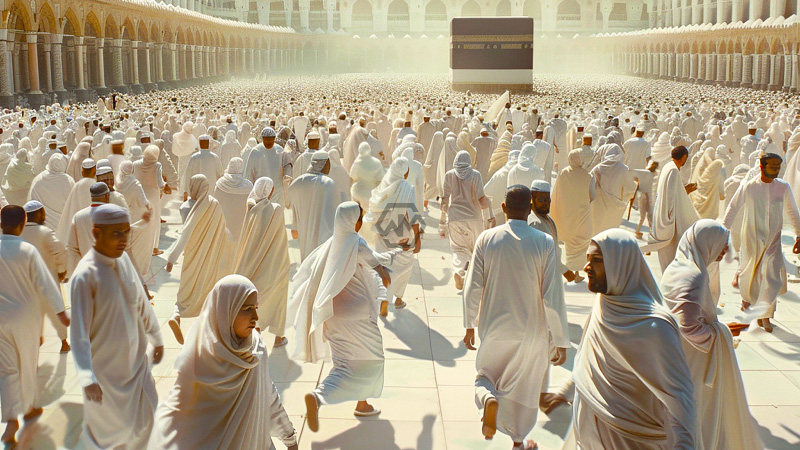- 1,301 deaths during Hajj, mostly unregistered pilgrims.
- Extreme heat reaching 51.8°C caused many fatalities.
- Unregistered pilgrims lacked adequate shelter and amenities.
Saudi Arabia reported 1,301 deaths during the recent Hajj pilgrimage, with the majority being unregistered pilgrims who succumbed to extreme heat. Temperatures soared to 51.8 degrees Celsius, and many pilgrims, particularly those without official permits, were exposed to harsh conditions without adequate shelter or medical facilities.
The Hajj, a vital religious obligation for Muslims, saw 1.8 million participants this year, with 1.6 million from abroad. Unregistered pilgrims, particularly from Egypt, faced severe challenges. The lack of official authorization left them without access to essential amenities, resulting in a significant number of heat-related deaths.
Unregistered Pilgrims Suffer in Extreme Hajj Conditions
During this year’s Hajj, Saudi Arabia recorded 1,301 deaths, with a staggering 83 percent being unauthorized pilgrims. These individuals faced extreme heat, with temperatures peaking at 51.8 degrees Celsius, causing numerous heat-related fatalities. Many unregistered pilgrims had to walk long distances without adequate shelter or comfort, significantly contributing to the death toll.
Hajj permits are distributed on a quota system and are often expensive, leading many to undertake the pilgrimage without official authorization. This year, around 400,000 unregistered pilgrims participated, mainly from Egypt. The lack of official permits meant these pilgrims did not have access to air-conditioned tents or proper medical care, exacerbating the risk of heat-related illnesses and fatalities.
The Saudi health system managed to provide extensive services during the pilgrimage, with over 465,000 specialized treatments, including care for unauthorized pilgrims. However, the harsh conditions and inadequate facilities for unregistered pilgrims resulted in significant mortality. The extreme heat and the physically demanding nature of the Hajj rituals were especially challenging for elderly and chronically ill individuals.
Looking forward, the timing of the Hajj will gradually shift to cooler months in the Gregorian calendar, potentially reducing heat stress risks. Yet, a study predicts that due to climate change, extreme heat will become a recurring challenge for future Hajj pilgrims. This highlights the need for improved management and support systems to ensure the safety and well-being of all pilgrims, regardless of their registration status.
The recent Hajj pilgrimage highlighted the severe risks faced by unregistered pilgrims, particularly due to extreme heat. Addressing the needs of all participants, especially those without official permits, is crucial for future events.
The recent Hajj pilgrimage highlighted the severe risks faced by unregistered pilgrims, particularly due to extreme heat. Addressing the needs of all participants, especially those without official permits, is crucial for future events.



